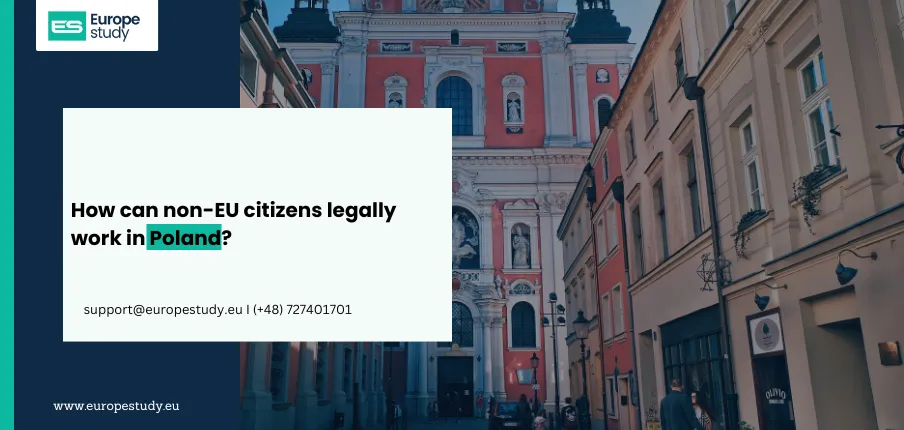
How Non-EU Citizens Can Legally Work in Poland?
Poland has become an increasingly attractive destination for non-EU citizens seeking work opportunities due to its growing economy and strategic location in Europe. However, working in Poland legally involves meeting specific requirements. Here’s a clear guide on how non-EU citizens can obtain the right to work in Poland.
1. Work Permit Requirement
Most non-EU nationals must obtain a work permit before starting employment in Poland. The type of work permit depends on the nature of the job and the individual's circumstances. The most common types include:
- Type A: For those employed by a Polish employer.
- Type B: For board members residing in Poland for over 6 months within 12 months.
- Type C, D, E: For intra-company transfers or work for foreign employers.
2. Steps to Obtain a Work Permit
- Employer Applies: The employer in Poland must apply for the work permit on behalf of the foreign worker.
- Labor Market Test (if required): In some cases, the employer must prove that no Polish or EU citizen can fill the position.
- Voivodeship Office Decision: The local Voivodeship Office (provincial government) processes the application.
- Permit Issuance: If approved, the permit is valid for up to 3 years, depending on the job contract.
3. Visa or Residence Permit
Once the work permit is issued, the non-EU citizen must apply for either:
- A National (D-type) Visa at a Polish consulate in their home country, or
- A Temporary Residence and Work Permit in Poland if already legally staying in the country.
4. Legal Employment Based on Other Permits
Some categories of foreigners can work without a work permit, including:
- Holders of a Polish residence permit with work rights
- Graduates of Polish universities
- Refugees or those under subsidiary protection
- Spouses of Polish citizens (with legal residence)
5. Special Pathways for Certain Nationals
Citizens of countries like Ukraine, Belarus, Georgia, Armenia, and Moldova can work in Poland more easily through a simplified procedure known as the declaration of employment (valid for up to 24 months), but this still requires registration and proper documentation.
6. Stay Compliant
Non-EU workers must ensure:
- Their work matches the terms of their permit.
- They renew their permits on time.
- They maintain valid health insurance and residence documents.
Conclusion
Working legally in Poland as a non-EU citizen is achievable with proper planning and documentation. It's crucial to collaborate with a legitimate employer, follow the official procedures, and stay updated on immigration rules. Consulting with legal experts or Polish immigration offices can also ensure a smooth process.





